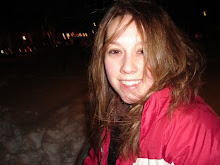
I really enjoyed, Escape from Saddam. I couldn't believe how graphic this novel was, just even in the very beginning when Lewis' Uncle Saad was telling him about having to join Saddam's army.
"You haven't got any choice. You've been called up, and if you don't go they will consider you to be a deserter. When they catch up with you--which they will if you are still in the country . . ." He made a deft flicking sign by his right ear to indicate its removal--the standard punishment for anyone who went awol. "I've seen people selling these ears on the black market so that deserters can have them sewn back on. Trust me, they are not a pretty sight" (6).
In the United States, with the exception of the draft, if someone does not want to be in the military, they don't have to. I thought the passage immediately after showed how the uncle was truly trying to talk his nephew out of his desire to escape the army.
"Saad looked around nervously, checking that no passersby--no matter how innocent they looked--could overhear our conversation. Idle talk had a tendency to find its way back to military intelligence, and the consequences could be severe. "I don't know, Sarmed. The stakes are higher now. Not attending university is one thing, but running away from the army is quite another. If any of my colleagues were caught deserting during the Iran-Iraq war, they were shot in front of their relatives and the families had to pay for the ammunition" (6).
I can't believe the last line, the family had to watch the execution. How terrifying and horrible would that be. It is such a different world, a different culture, one to me that's nearly unimaginable. His journey itself was incredibly heroic.

























